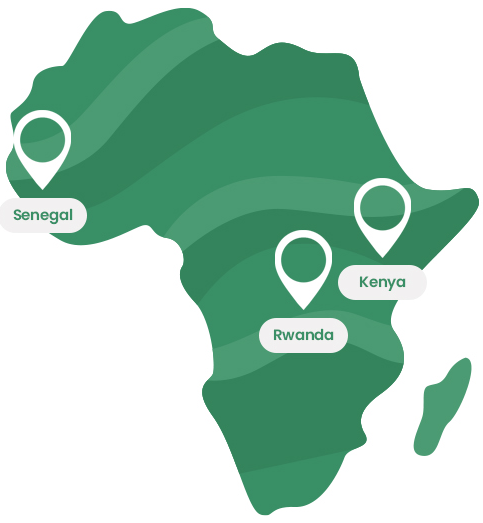


Across all cancers, the difference in mortality rate across regions is pronounced. For example, in Sweden the five-year survival rate is 72% but in Africa it is just 24%.
The Foundation will pilot programs in Africa, specifically Kenya, Rwanda and Senegal, then expand to surrounding countries, regions and other low- and middle-income countries. It will focus on three areas:
Clinicians and patients in low- and middle-income markets will benefit from the work of the Elekta Foundation and, through awareness and prevention, so will the general public in those regions. The Elekta Foundation will therefore be creating a sustainable difference to the future health and well being of people in these areas.
The three focus areas will prevent, treat, and cure many cancers in low- and middle-income countries. By educating and building competencies in radiotherapy, patient care throughput and the overall quality of cancer care can be improved.
Elekta Foundation already has five education programs underway with our academic partners. These will be delivered in a combination of virtual and in-person classes throughout 2022.
Elekta Foundation will pilot With its initial efforts on the African countries of Kenya, Senegal and Rwanda. The knowledge that we gain from this pilot phase will allow us expand Foundation initiatives in surrounding countries, regions and, as quickly as possible, the rest of the world.
In radiotherapy, patient outcomes depend on how clinicians use their equipment and techniques. Unfortunately, there is a large knowledge gap in many countries. Some hospitals do have advanced treatment systems yet lack the expertise required to use them to their full potential and with the highest safety.
The lack of cancer centers, equipment and trained staff is a significant burden in many developing countries. In some cases there is not one facility in an entire region or there are only a few doctors in a whole country. The Elekta Foundation will work to develop new tools and models to scale up cancer care infrastructure. For example, by building a network of experts from more developed countries to provide services such as a second opinion and remote support, we can dramatically improve the volume of patients treated and the quality of care.
In collaboration with other NGOs and local governments, the Foundation will develop awareness and prevention initiatives. We know that the odds of surviving cancer are much greater when we diagnose and treat early. Therefore, early screening, detection and treatment are key. For example, we can prevent, treat and cure cervical cancer through vaccinations and early treatment. Radiotherapy techniques such as brachytherapy are very effective to treat early-stage patients. However, in Africa, cervical cancer still ranks as a leading cause of cancer death. We will strive to better educate policymakers, healthcare providers and the general public. The Elekta Foundation is developing partnerships and programs to join the fight to end this life-threatening cancer in Africa.
Approximately 70 percent of deaths from cancer occur in low- and middle-income countries and the survival rates show great discrepancies. In Elekta’s home country of Sweden for example, survival rates for cancer patients are three times higher compared to patients in Africa.
When you consider that more than half of all cancer patients need radiotherapy, it’s jarring that 70 percent of all radiotherapy equipment is available to only 25 percent of the world’s population. We must address this imbalance. We believe the Elekta Foundation can help facilitate this change.